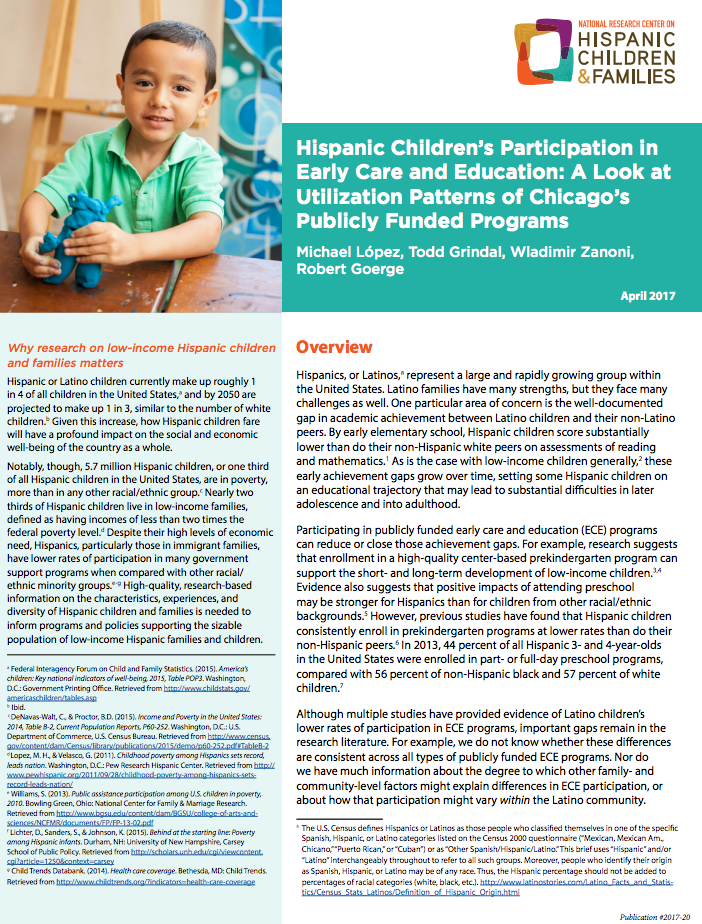This research brief from the National Research Center on Hispanic Children & Families on Latino utilization of early care and education (ECE) programs in Chicago. Studies have long found that young Hispanic children are consistently less likely than their non-Hispanic peers to enroll in preschool, a contributor to the gap in educational achievement affecting low-income Latino kids. However, this new study, using integrated data from Chicago, finds that this is not always the case, particularly for the low-income children that programs such as Head Start strive to reach.
In the brief, researchers examined rates of participation in center and home-based early care and education (ECE) for low-income Hispanic and non-Hispanic 3- and 4-year-olds in Chicago, IL. These findings were surprising: more than 4 out of 5 (83%) low-income Hispanic children participated in some form of publicly funded center-based or home-based ECE in the 2 years before they entered kindergarten. When controlling for factors other than Hispanic ethnicity, low-income Hispanic children were actually more likely than their peers to attend these ECE programs. And, within the Hispanic population, enrollment rates were higher for kids from Spanish speaking homes and those who had one or more parents born outside of the U.S.
Check out the brief, On the Road to Kindergarten: Participation of Low-Income Hispanic Children in Chicago’s Publicly Funded Early Care and Education Programs, for more on these findings.
